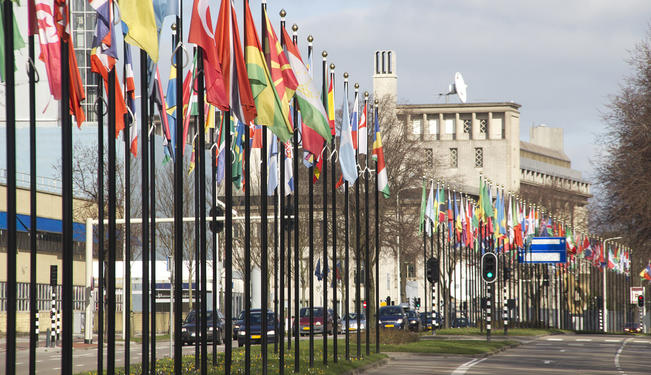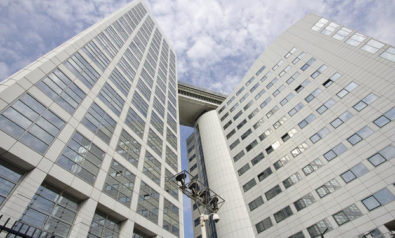A closer look at the ICC and the trial of Kenyan President Uhuru Kenyatta.
Background
Despite the fact that the International Criminal Court (ICC) may appear to be a recent phenomenon, in reality, the long story of its establishment stretches back to the late 19th century.
In 1872, Gustav Moynier, one of the founders of the International Committee of the Red Cross, proposed the creation of a permanent international court to seek justice for crimes committed during the Franco-Prussian War.
The next resurgence of interest in the establishment of an international tribunal occurred in 1919 during the Paris Peace Conference, when the drafters of the Treaty of Versailles proposed the establishment of a court to try Kaiser Wilhelm II and German forces. The idea was abandoned until it was resurrected following World War II, when the Allies started the Nuremberg and Tokyo trials to seek justice for victims of atrocities and to punish the perpetrators.
Following these trials, the United Nations General Assembly adopted the Convention on the Prevention and Punishment of the Crime of Genocide. The document called for criminals to be tried "by such international penal tribunals" that have jurisdiction, while it also asked the International Law Commission (ILC) "to study the desirability and possibility of establishing an international judicial organ for the trials of persons charged with genocide." Although the International Law Commission drafted these documents, the plan for an international tribunal was abandoned due to the tense political climate of the Cold War.
In 1989, Trinidad and Tobago, partially motivated by a desire to combat drug trafficking, moved to resurrect the pre-existing proposals for the establishment of an international tribunal. Consequently, the ILC resumed drafting a statute.
In the early 1990s, as the United Nations (UN) established ad hoc tribunals in Rwanda and Bosnia to seek justice for genocide and other crimes against humanity, the need for a permanent international criminal court became increasingly clear.
After years of negotiations, the UN General Assembly convened a conference in Rome in June 1998 to finalize a treaty. On July 17, 1988, the Rome Statute of the International Criminal Court was adopted — 120 nations voted in favor of the adoption of the Rome Statute; seven nations, including the United States, Israel, China, Iraq and Qatar, voted against the treaty; and 21 nations abstained. In 2002, the court became fully operational.
According to its mandate, the ICC is intended to complement existing national judicial systems. The court only exercises its jurisdiction in cases where national courts are unwilling or unable to investigate or prosecute crimes. The Office of the Prosecutor is responsible for conducting investigations and prosecutions. The prosecutor opens investigations after referrals from state parties or the UN Security Council. However, the prosecutor may also open an investigation, if they receive information meriting a judicial response from individuals or NGOs.
The first prosecutor of the ICC was Luis Moreno Ocampo, while the current prosecutor is Fatou Bensouda. The court’s headquarters are in The Hague, Netherlands.
Why is the ICC Relevant?
In recent years, the ICC has been accused of bias and neo-colonialism as all eight cases that the court has investigated have been African ones. Despite having a global mandate, African leaders have complained that the ICC places too much of an emphasis on Africa while ignoring other nations.
Due to the prosecution of Kenyan President Uhuru Kenyatta and Vice President William Ruto for crimes committed during 2008’s post-election violence, the ICC has been subject to severe criticism over the last few years. Kenyan Foreign Minister Amina Mohamed has accused the ICC of treating “[Africans] like toddlers,” while the Kenyan parliament passed a motion calling for the withdrawal of support for the ICC.
The Kenyan campaign against the ICC has received support from other African nations. In October 2013, the African Union (AU) convened a summit that condemned the ICC’s treatment of Africa. Following the summit, the AU called upon the ICC and the UN Security Council to delay the Kenyatta/Ruto case.
Now, a debate rages on over the court’s perceived bias and who should direct the fight for justice in Kenya.
The views expressed in this article are the author's own and do not necessarily reflect Fair Observer’s editorial policy.
Image: Copyright © Shutterstock. All Rights Reserved
For more than 10 years, Fair Observer has been free, fair and independent. No billionaire owns us, no advertisers control us. We are a reader-supported nonprofit. Unlike many other publications, we keep our content free for readers regardless of where they live or whether they can afford to pay. We have no paywalls and no ads.
In the post-truth era of fake news, echo chambers and filter bubbles, we publish a plurality of perspectives from around the world. Anyone can publish with us, but everyone goes through a rigorous editorial process. So, you get fact-checked, well-reasoned content instead of noise.
We publish 2,500+ voices from 90+ countries. We also conduct education and training programs on subjects ranging from digital media and journalism to writing and critical thinking. This doesn’t come cheap. Servers, editors, trainers and web developers cost money.
Please consider supporting us on a regular basis as a recurring donor or a sustaining member.
Support Fair Observer
We rely on your support for our independence, diversity and quality.
Will you support FO’s journalism?
We rely on your support for our independence, diversity and quality.





